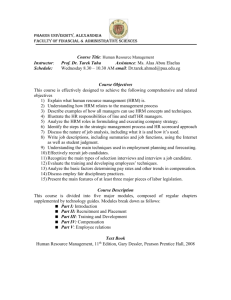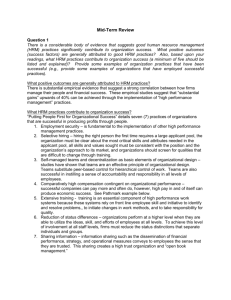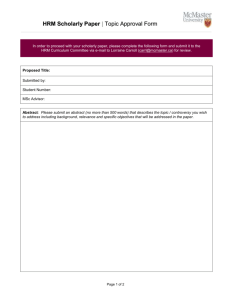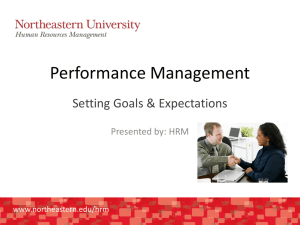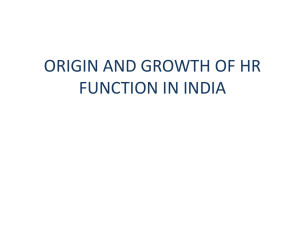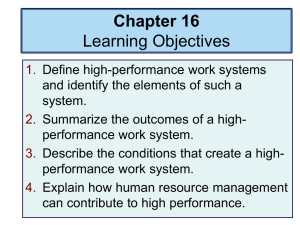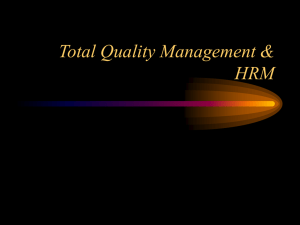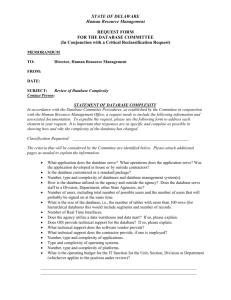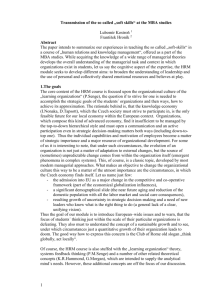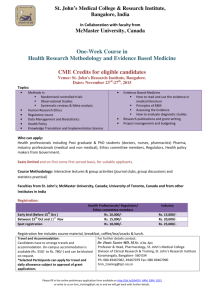conceptual and pedagogical challenges in teaching OB/HR
advertisement
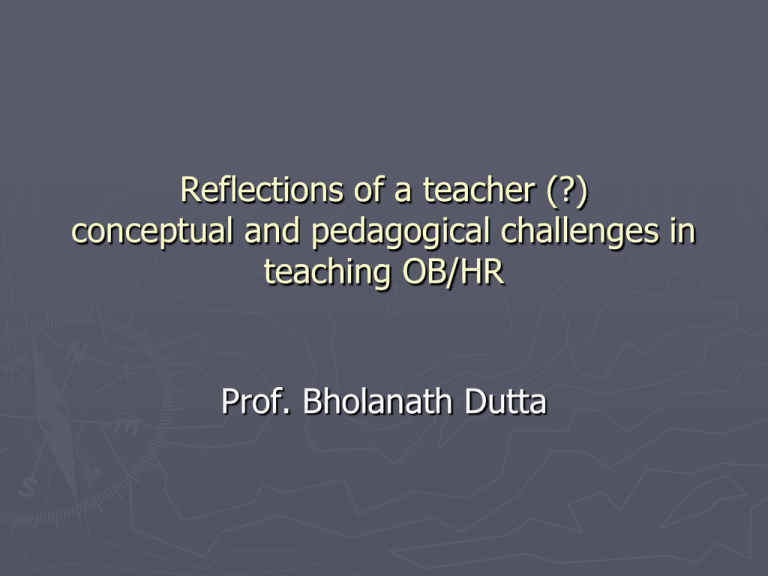
Reflections of a teacher (?) conceptual and pedagogical challenges in teaching OB/HR Prof. Bholanath Dutta Agenda for the session ► Challenges in teaching OB/HRM in MBA programs ► Conceptual limitations ► Pedagogical limitations ► Alternate methods and forms ► Integration and realignment ► “being a learning self”– redefining the role of being a facilitator Challenges in the MBA program ► Young graduates – not aware of organizational realities ► Expect tools and techniques – to take away ► Believe that “hard subjects” like finance and marketing are more important than “soft subjects”—peripheral subjects ► OB/HR seen as a “feminine discipline” Challenges in teaching OB/HRM ► Reality more complex and integrated– classification of OB/OT/HRM not representation of reality ► Roots being different --- OB comes dominantly from psychology or social psychology; OT coming from sociology and anthropology or management science, HRM – atheoretical Changing organizational contexts ► Dominant logic : rational, resource dependence not normative ► Espoused values about people to reality – divergence high ► Organizational cynicism among practitioners high about HR ► Increasing pre-occupation with the short term – market driven Conceptual challenges ► Assumptions about human nature – nurture vs. nature –our bias ► Levels of analysis – micro, meso and macro ► Universality vs Specificity in human behaviour ► Interaction effect of variables – what is dependent, independent? Eg does motivation lead to job satisfaction or does satisfaction lead to motivation? Does leader create culture or culture select leaders? Pedagogical challenges ► Content: OB syllabus is organized around research areas (leadership, power, motivation, communication) whereas HRM syllabi is organized around functional activities (training, performance management, employment laws) ► Textbooks: often need to be customized with readings Pedagogical challenges ► Objective of the course vs methodology Create awareness Build understanding Enable analysis Foster application Encourage synthesis Apply judgment Arrive at a decision What does business expect from HR professionals? ► Mastery over a body of knowledge ► Critical thinking skills – HR is always gray, therefore the need to find alternate solutions ► Understand business and the organizational strategies ► Building relationships and developing people ► Project management, when you have outsourced the function ► Consulting skills Stimulating and retaining attention ► Align with student interests – career, identity, perceptions, motivation – recognize the constellation of logics in an youngster’s world ► Use strategy, marketing or finance cases to teach OB/HR ► Organize courses around problems/challenges -- Alternate methods and forms ► Group activities – projects, assignments (need to process this information as we go along) ► Interview an HR executive or a line manager with a reporting authority ► Use of games, simulations and videos ► Use of exercises, tools, cases, ► Learning dairy – what did I learn? Continued… ► Use of movies “twelve angry men”, “Erin Brokovich”, Matrix, The corporation, lagaan, modern times, My fair lady, Gandhi ► Use of autobiographies, Gandhi, Lenin, Newton, Plato, Socrates, Hitler, George Washington, Lincoln ► Use of innovative newspaper items Challenges in discovering self ► Never offer the same course with the same structure the next year. You will become complacent ► What is working well, don’t tinker. It can’t get any better ► Challenge yourself conceptually???? ► Be willing to accept that you could be wrong and that there could be many rights….. An old model applied OD HRM theoretical OB micro OT macro Conceptualizing leadership ► As a trait ► As a style ► As a contingency behaviour ► As an influence process ► As followership ► As decision making process ► Change agent ► Psychodynamics Seeing organizations ► Rational logical systems ► Machine ► Bureaucracy ► Chaos ► Power play ► Organic ► Networks and rules THE END

